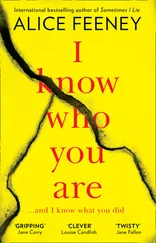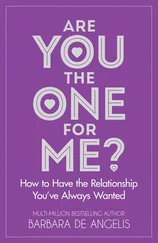“Do you think that Dad always knew he’d go back to England?” I asked my mother once. I must have been nineteen, home for winter break. Our holidays were stunted and bare; some years we didn’t bother to decorate our tree. We ordered Chinese food, as if we were actually Jewish. But it was Christmas Eve, and the public radio station was playing carols and my mother was singing along. She liked the old English ones: “The Holly and the Ivy” and “Lo, How a Rose Ere Blooming.” She had a lovely voice.
“He didn’t plan to fall in love with an American,” my mother said. “But he didn’t plan to fall out of love either. If things had worked out differently, we could have ended up in London with him.”
Such a possibility had never occurred to me. It could have been me and my mom, not Sebby and Phillipa, in the house in Holland Park. Phillipa’s Christmas card—a picture of Sebby on a horse—had arrived the day before. Over the years fewer and fewer people sent us cards. When my father was around, we received hundreds. My parents had friends all over the world. But after my mother stopped accepting invitations and going to parties, our names were crossed off correspondence lists. By the time I was in high school, the only card that arrived every year was the one from Phillipa and my dad. It was always addressed to me, as if my mom didn’t exist.
“You would have had to take a plane to get to London,” I said, and instantly regretted being so mean.
“I used to fly,” she said.
My parents met when my father was in graduate school. My mother was an undergraduate—“a Cliffie,” my father said—and he spotted her reading in Harvard Square and immediately asked her to lunch. “I was besotted,” he said.
“What was she reading ?” I wanted to know the first time I heard the story.
“I don’t remember,” he said.
“Emily Dickinson,” my mother told me later. “I was reading Emily Dickinson. ‘I felt a funeral in my brain.’” She let out a short, bitter laugh. “There was no false advertising, you know. I never pretended to be someone I wasn’t. Your father just refused to see me for who I was.”
* * *
I CONTINUED TO VISIT the places Jenny had been, not just because my mother wanted me to but because I hoped to find some residue of Jenny’s presence. I went to the Old Circus one night; it was full of children, and I realized that they were the first kids I’d seen in Moscow. I hadn’t noticed a single playground. If children are the future, their absence suggested a lack of faith. But now I was surrounded by children—where did they all come from? They packed the sticky seats of the amphitheater, squirming and sniffling, their noses running with seasonal colds. Their giddy pink faces turned up to watch the acrobats. The costumes were tattered, with patches of fabric bereft of sequins, but if you squinted, the illusion was intact. Jennifer Jones has taught us that children everywhere are the same, said the opinion pages. Innocence has no borders. Jennifer Jones taught us that everyone, all over the world, loves a good show.
Meanwhile the Moscow Times ran a story about a traveling Russian circus that had been stranded, without money, in the Philippines for seven months. Despite charity donations, much of the troupe died of starvation. Just thirteen of the original thirty-seven performers and nine of the original animals survived the ordeal. “I’m sorry to laugh,” Corinne said when we read the article, “but you couldn’t make this stuff up if you tried.”
Another night Corinne and I went to the Bolshoi for a performance of Swan Lake. The theater had seen finer days: it was a diva past her prime. The applause at the end of the ballet was the most remarkable thing about the performance. The dancers were summoned for curtain call after curtain call, and dozens of people in the audience approached the stage with bouquets. The clapping went on for half an hour, and by the end my hands were raw and the prima ballerina was holding so many flowers that we could no longer see her face.
I grew bolder about exploring on my own. I’d begun to make sense of Moscow’s circular design, the concentric rings of its streets. The city had no grid; it rippled out from the Kremlin, vibrant in reds and yellows, but seemed duller the farther you moved from the center.
On the day I’d first met Svetlana, she said, “How do you like Moscow? Is it like Washington?”
“It’s nothing like Washington,” I said.
But I soon realized that wasn’t true. Both cities loved monuments. Both had tombs dedicated to unknown soldiers and imposing statues of their founding fathers. In both cities there were too many one-way streets. You couldn’t turn left anywhere in Moscow, so driving was infuriatingly inefficient. But the Metro was fast and cheap.
I went back to Lenin’s tomb. Inside, the mausoleum was lit like a church, with a halo of light over the body. Americans told me that it wasn’t really Lenin, that it was a wax surrogate entombed in glass. It did resemble a figure at Madame Tussaud’s, I thought, but the guard whisked me and the other visitors through the room too quickly for us to get a closer look.
I visited the Tretyakov Gallery and the Pushkin Museum. I learned the drill at museums: you had to trade your shoes for felt tapochki that kept sliding off your feet as you moved through the galleries. At the Pushkin I savored paintings by Matisse; at the Tretyakov I stood in awe of the Kandinskys and Chagalls. I walked past the White House—so different from the one in Washington—and the headquarters of the Soviet “news” agency, TASS. I strolled along the river by the beloved Red October factory, where the scent of chocolate in the air was cloyingly sweet. I ventured to Tolstoy’s winter house, where everything had been preserved exactly as he’d left it. On the floor beside his desk were two tiny barbells. They must have weighed about one pound each. I wondered if he used them during writing breaks, if he was doing biceps curls right before he threw Anna Karenina onto the tracks.
I signed up for a Russian conversation class and started taking the Metro to Moscow State University every morning. There were ten people in the class, and all of us were women. Most were wives whose husbands’ jobs had brought them to Moscow. There was a Chinese diplomat’s wife, fine-boned and delicate; a freckled, middle-aged Brit married to someone at the BBC; a no-nonsense Dutch woman, whose elongated face reminded me of a Modigliani painting. Our teacher was Irina, whose pedagogy was inspired by the way children learn. She never spoke a word of English, but she repeated Russian phrases over and over again, trusting that meaning would be revealed by context. She stood in the center of the room, playing with props and exaggerating her expressions like a clown. The class was two hours long. It was baffling at first, but within three days I saw dramatic improvement in my language skills. I no longer constructed phrases in my head before I said them. Words were spilling out. I was picking up the speech patterns of the Muscovites around me. My vocabulary grew without flash cards.
I got used to the arbitrary scheduling of the pereryv —the break when shops, offices, and restaurants would close in the middle of the day, sometimes for an hour, sometimes longer. I got used to checking my coat everywhere (you had to check it, whether you wanted to or not). I learned that the main ingredient in “salads” was mayonnaise. I learned that Russians loved ice cream so much that they ate it on the street even when it was freezing outside. I got used to being bossed around by babushkas. Old Russian women didn’t hesitate to scold people on the street. Devushka! they’d say. Girl! You’re not dressed warmly enough, they’d say. Or, Tie your shoe. They always found something to wag their fingers at. Part of me resented the intrusion; part of me was sure I deserved the criticism.
Читать дальше












